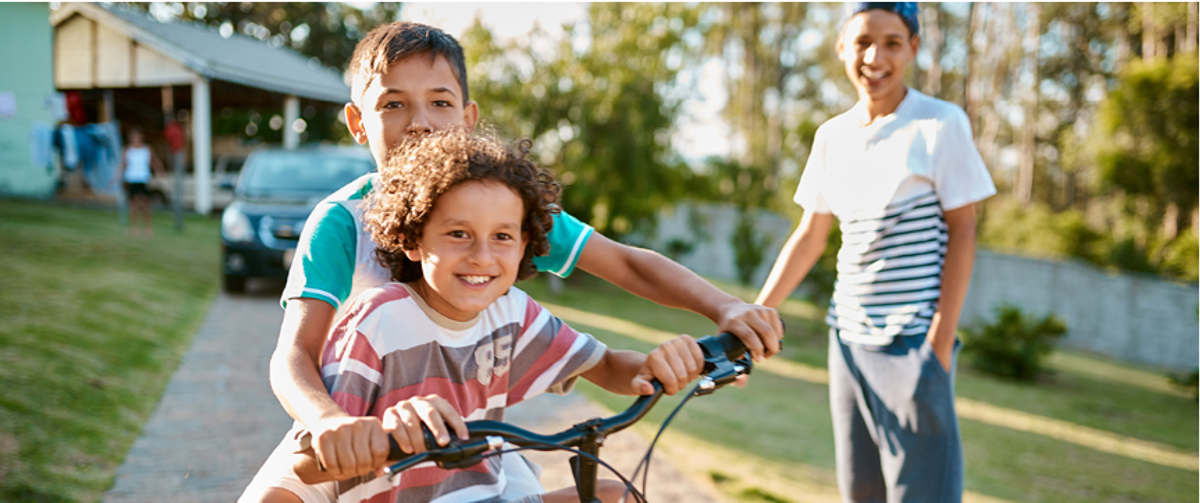Helping the Mental Health of Our Children
It's not rocket science...
Source: Lance Burdett, consultant in communications, resiliency and safety

Helping the Mental Health of Our Children
It's not rocket science...
Source: Lance Burdett, consultant in communications, resiliency and safety


Article at a Glance
Whenever we run coaching sessions on personal resilience, the question always arises - "How can I look after my child struggling with anxiety but who won't seek professional help?" It's a tough one, very tough, so tough that there is no definitive answer to cover all situations.
This marked increase in anxiety and depression can be down to three main things:
1. An overload of information for our prehistoric brain - social media, Google, too many choices and other contributors has caused our brain to work much faster than previously. Also, the devices themselves can be impacting our neuro-wiring.
2. High expectations of ourselves and on others - we want things now and done correctly, we strive to have the best of everything, we sometimes compare ourselves to others and want to be like them, we feel we must get the best marks, our school reports are like performance appraisals, and desire to achieve perfection is increasing.
3. Social isolation - we don't talk face-to-face across the generations as we once did, we use devices more and more to communicate. When we are truly struggling we are reluctant to tell another because we feel like we have failed. We feel alone.
Current research indicates that it is not the big things that necessarily impact us the most, it's lots of little things that accumulate and make us vulnerable when the big thing does happen. The above list is just that, lots of little things that accumulate.
To counter what is currently going on with our young ones, introducing a few little things can make a difference;
1. Reducing the use of smart technology
It's a balance between doing practical and tangible things along with the use of technology. Spending one hour across the day talking face-to-face with people - not necessarily with friends, not just talking with family, but also talking with; teachers, bus drivers, fellow passengers, shop assistants, the barber/hairdresser, anyone and no one in particular, just with people of all generations. Listening to music is good for us, listening all day is not so good for us, removing the headphones every so often and saying hello with a smile is beneficial for both.
2. C's gets Degrees
There is nothing wrong with striving to do the best that we can, in fact, science shows us that putting ourselves under a little bit of pressure is good for our brain. However, if we have constant high expectations of always wanting the best, getting the best, and being the best, we become disappointed when it doesn't happen. With our negativity bias, we remember the negative things much easier than the positive things, so they accumulate. Slightly reducing our expectations, immediately managing any disappointment when we don't get what we wanted, and making a plan to move forward following the disappointment all help to mitigate the negative impact when we don't reach exactly what we sought.
3. Get outside for exercise or play
Walk, run, bike, slide, fall, etc. - exercise, play, sun, fresh air, all of these things make a difference to our wellbeing. Join them all together and they make a massive difference.
4. Breathing
When we become anxious our breathing is the first thing to change, we breathe short and shallow. There are three breathing techniques that we recommend, all breathing must be done through the nose;
The big hurdle as a parent is sometimes getting our young ones to listen to us. Often, they won't and we push them more because we want to help them. These days, pushing on our young can end up pushing them further away. Coax them instead, do some of the things listed above yourself and maybe they will follow, this might lead to doing some of them together.
If it is the little things that impact us the most, then let's start with the little things. Our brain does not like to be forced to change, that's sometimes why we stay down in the mire. Doing one small thing daily is the way to make a change in our lives. Mt Everest was conquered in this way, just one small step at a time.